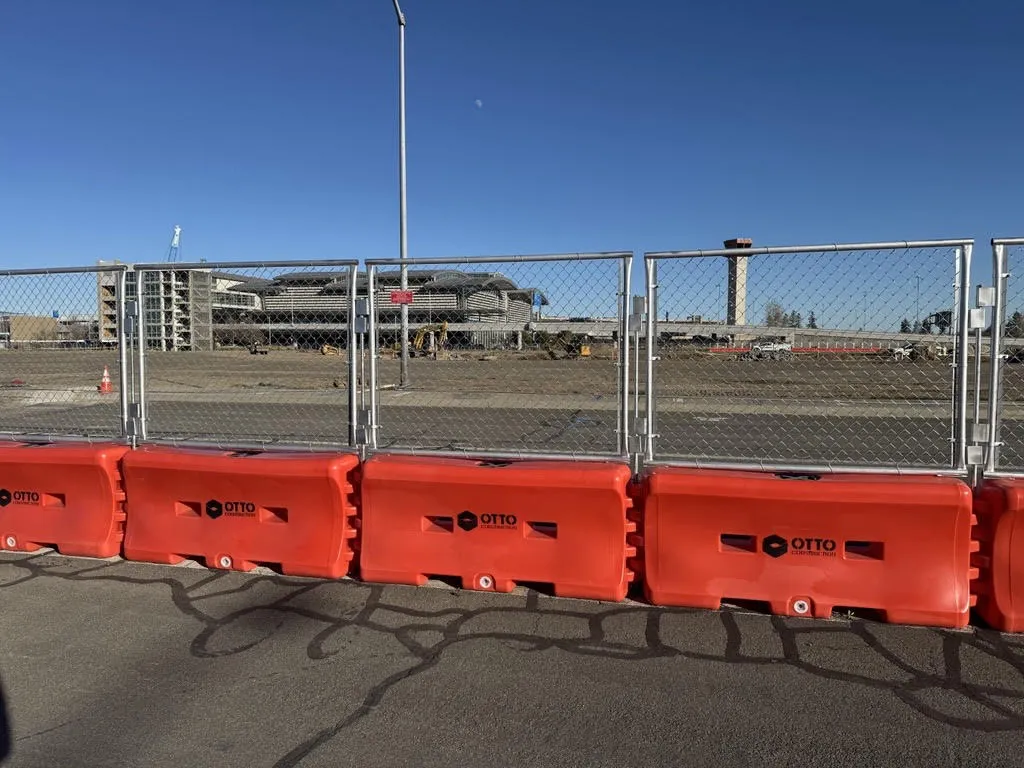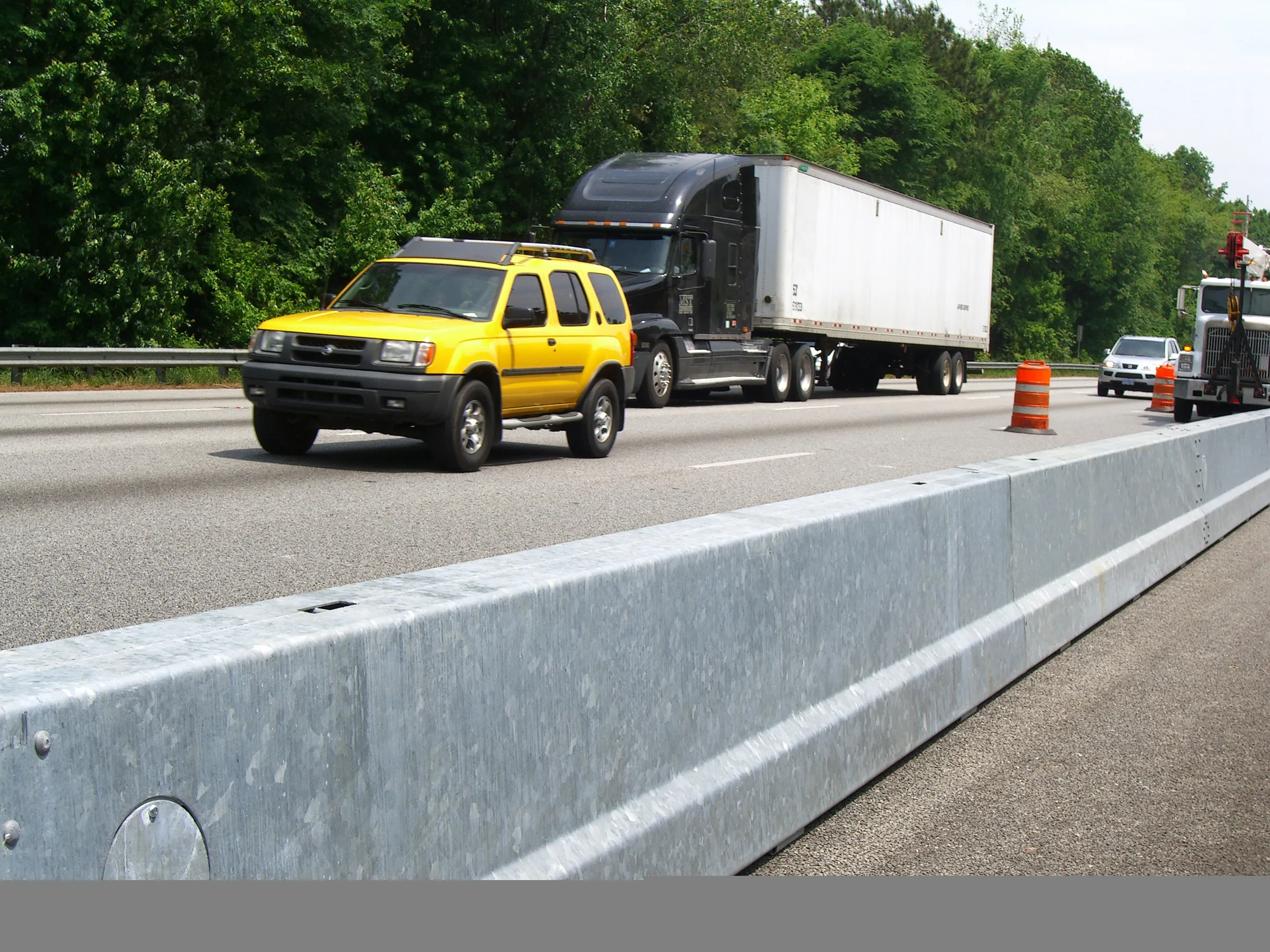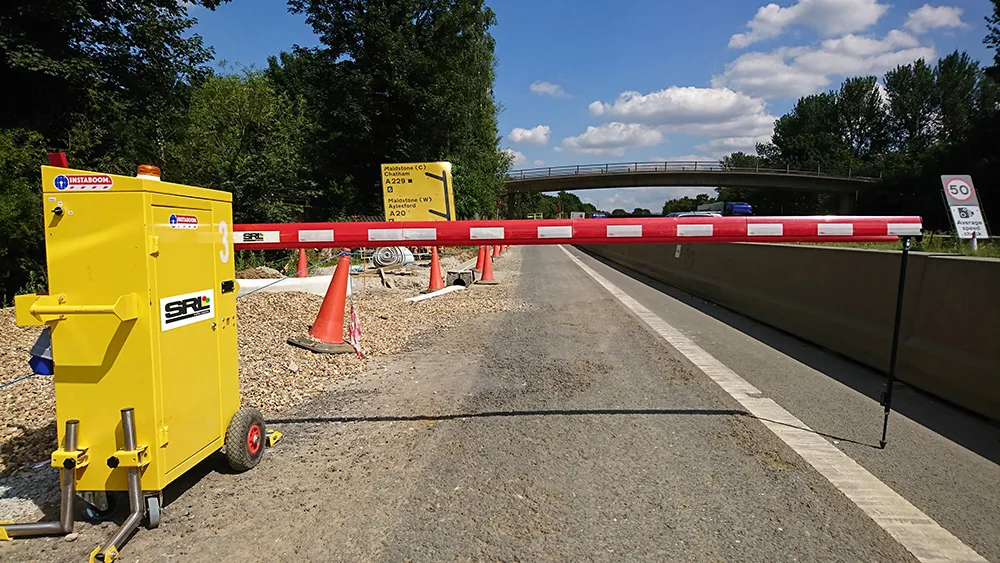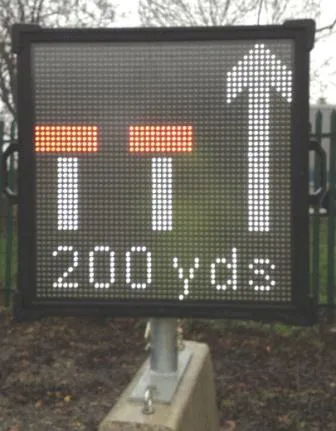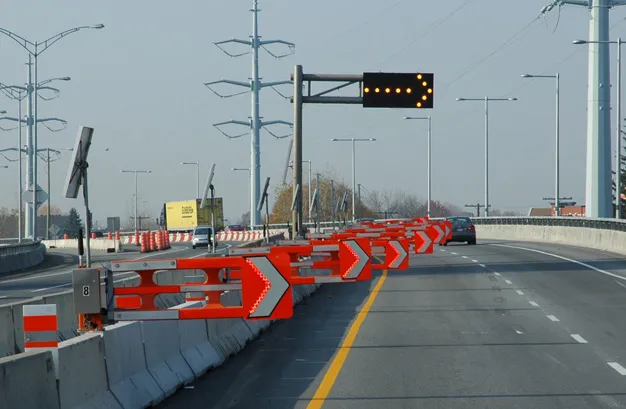
Automated access control is not only safer for road crews but reduces the time and cost of deployment of signage for access and traffic control.
Canadian traffic systems provider
Typical automated access control solutions are for reversible lanes and managed lanes – used in conjunction with the Road Zipper barrier mover manufactured by Lindsay Transportation Solutions in the US. Swiftgate, which sends a clear message to motorists that an access is closed, is crash-tested to NCHRP 350 requirements to ensure the safety of motorists in the event of a crash. According to the company, SwiftGate is also the only crash-tested gate on the market.
Versilis offers various control and monitoring options. Wireless solar powered solutions are available for quick installation and relocation. The SwiftSign and SwiftGate small mechanism footprint allows installation on narrow median barriers. Versilis says that it also offers engineering support at every step of its client’s project for ease of installation and minimal maintenance requirements.
Local operation can be carried out by an RF handheld remote control (902-928 MHz) and also by push buttons set in a nearby ITS cabinet to be operated manually by road crews. Maintenance is also minimal. For preventive maintenance, the battery for both SwiftSign and SwiftGate must be changed every five years.
Drive-by inspections must be conducted regularly to ensure no gate is broken due to a crash. But crashes are very rare, with only 3% of SwiftGate arms replaced annually due to crashes. Versilis says that on average, only 10% of SwiftGate polycarbonate flexible chevrons need replacing annually.
SwiftSign and SwiftGate installations can be found in major US cities including Dallas, Boston, New York, New Orleans and Pittsburgh, as well as in Canada in Montreal and Toronto.


